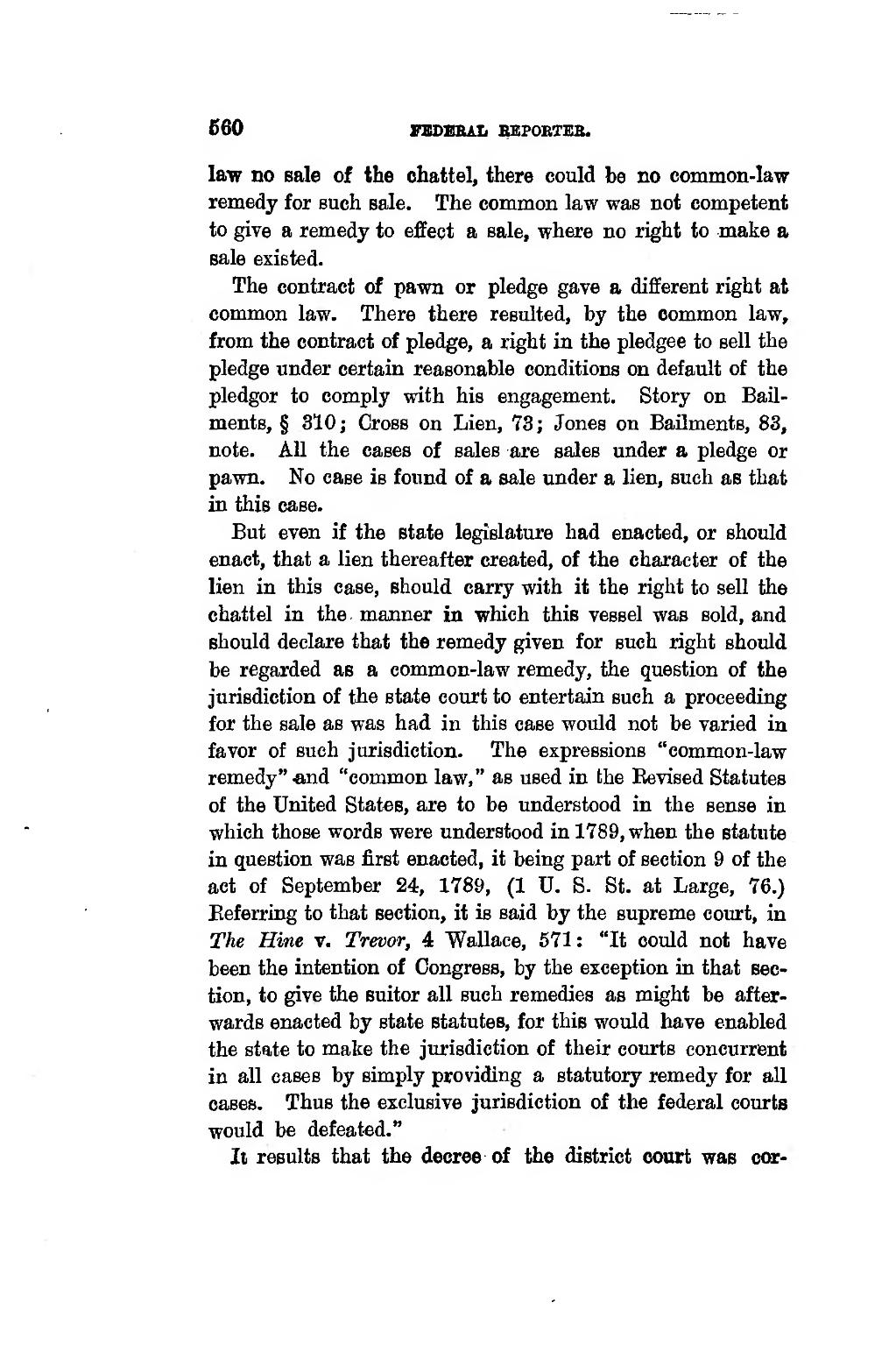660 FEDERAL REFOBTEB. �law no sale of the chattel, there could be no common-law remedy for such sale. The common law was not competent to give a remedy to effect a sale, where no right to make a sale existed. �The contract of pawn or pledge gave a different right at common law. There there resulted, by the common law, from the contract of pledge, a right in the pledgee to sell the pledge under certain reasonable conditions on default of the pledgor to comply with his engagement. Story on Bail- ments, § 310; Cross on Lien, 73; Jones on BaUments, 83, note. Ail the cases of sales are sales under a pledge or pawn. No case is found of a sale under a lien, such as that in this case. �But even if the state legislature had enacted, or should enact, that a lien thereafter created, of the character of the lien in this case, should carry with it the right to sell the chattel in the manner in which this vessel was sold, and should declare that the remedy given for such right should be regarded as a common-law remedy, the question of the jurisdiction of the state court to entertain such a proceeding for the sale as was had in this case would not be varied in favor of such jurisdiction. The expressions "common-law remedy" «nd "common law," as used in the Eevised Sta tûtes of the United States, are to be understood in the sense in which those words were understood in 1789, when the statute in question was first enacted, it being part of section 9 of the act of September 24, 1789, (1 U. S. St. at Large, 76.) Eeferring to that section, it is said by the supreme court, in The Hine v. Trevor, 4 Wallace, 571 : "It oould not have been the intention of Oongreas, by the exception in that sec- tion, to give the suitor ail such remedies as might be after- wards enacted by state statutes, for this would have enabled the state to make the jurisdiction of their courts concurrent in ail cases by simply providing a statutory remedy for ail cases. Thus the exclusive jurisdiction of the federal courts would be defeat«d." �Il results that the decree of the district court was cor- ����
